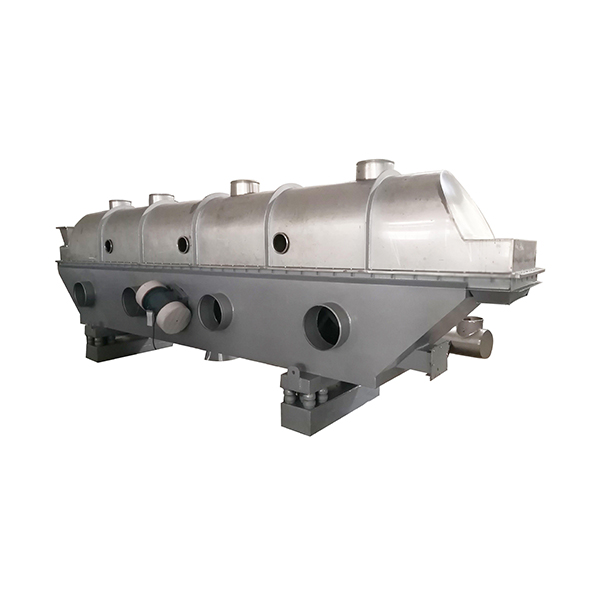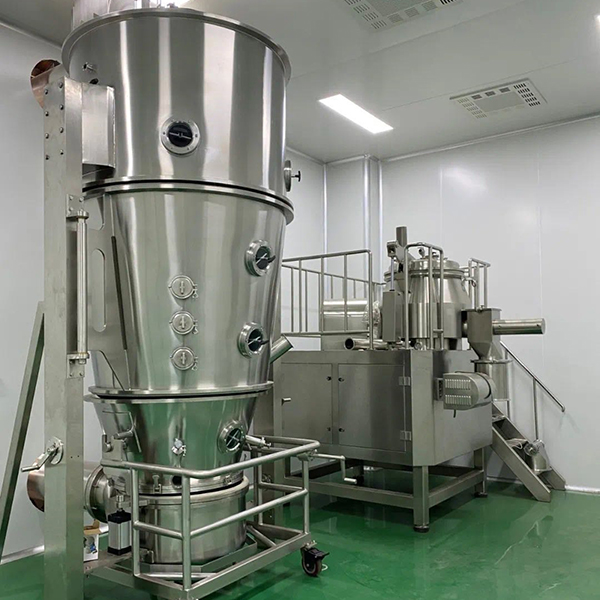Factory source Calcium Sulphate Drying Hollow Blade Sludge Dryer Machine Vacuum Rake Rotary Drum Paddle Dryer - Sludge dryer (hollow blade dryer) – TAYACN
Factory source Calcium Sulphate Drying Hollow Blade Sludge Dryer Machine Vacuum Rake Rotary Drum Paddle Dryer - Sludge dryer (hollow blade dryer) – TAYACN Detail:
Description
There are many types of sludge: chemical sludge, pharmaceutical sludge, food sludge, electroplating sludge, urban sludge, leather sludge, textile printing and dyeing sludge, agricultural sludge…
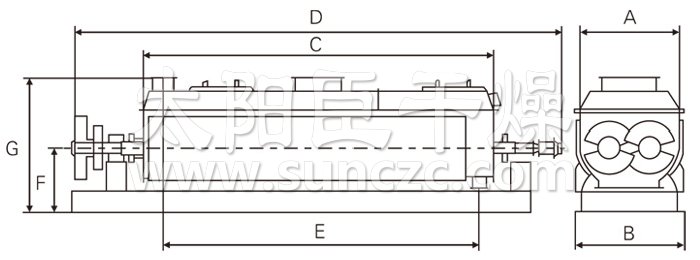
Sludge composition is complex, high moisture content, strong viscosity, easy to stick into a group during the drying process, resulting in sticky and sticky wall phenomenon, making the drying efficiency is low, the effect is poor. With regard to these characteristics of sludge, Soli Drying developed, designed and manufactured a sludge paddle dryer , which is an indirect heating and low-speed stirring dryer .
Sludge Dryer Introduction
The wet material is brought into full contact with the hot surface of the heated carrier under the agitation of the blade so as to achieve the purpose of drying, and the structure is generally horizontal. Sludge dryer is divided into hot air type and conduction type. The hot air form is directly contacted with the dried material through a heat carrier (such as hot air) and dried. The conductive form, ie, the heat carrier, is not in direct contact with the material to be dried, but the hot surface is in conductive contact with the material and dried. The sludge covers the blades and creates a scrubbing effect with the relative movement of the foliage.
Hollow shafts are densely arranged with hollow blades, and the heat medium flows through the blades through the hollow shaft. The unit heat transfer area is large (usually a single dual-axis blade area ≤ 200m2; single four-axis blade area ≤ 400m2 or so), the heat medium temperature from 60 ~ 320 °C, can be steam, can also Is liquid type: such as hot water, thermal oil and so on. Indirect conductive heating, heat is used to heat the material, the heat loss is only through the body insulation layer and humidity to the environment heat.
Sludge Dryer Performance Characteristics
(1) The equipment is compact and the sludge dryer has a small footprint. The heat required for drying is mainly provided by the wall surfaces of the hollow blades arranged on the hollow shaft, while the heat transfer amount of the walls of the jacket is only a small part. Therefore, the heat transfer surface of a unit volume device is large, which can save the equipment area and reduce the capital construction investment.
(2) High heat utilization. The sludge dryer is heated by conduction heating, all the heat transfer surfaces are covered by the material, reducing the heat loss; the heat utilization rate can reach more than 85%.
(3) The blade has a certain ability to wash, which can improve the heat transfer effect of the blade. The dispersive force generated by the combined motion of the inclined surface of the rotating blade and the particle or powder layer allows the sludge attached to the heating slope to have a cleaning function. In addition, due to the reverse rotation of the two-axis blades, the stirring and expansion of the stirring function are alternately divided so that the heat transfer is uniform and the heat transfer effect is improved.
(4). It can achieve continuous, fully enclosed operations and reduce man-made and dust emissions.
(5). Tail gas treatment systems generally use atmospheric pressure or negative pressure in two forms, according to different circumstances as much as possible reduce the amount of exhaust air, thereby reducing the cost of tail gas treatment, for the odor of sludge evaporation can be used after the deodorant system treatment standards discharge.
(6). The company can design a high-vacuum paddle sludge dryer for toxic and solvent-containing high-risk chemical sludge, and dry it for low-temperature drying. In this way, not only can the solvent be directly recovered, but also the amount of exhaust gas can be greatly reduced, and the safety and environmental performance can be greatly improved.
Sludge Dryer Key Technology Innovation And Improved Design
(1) Absorb sludge dryer technology concept, innovate and design the second generation of single-shaft, double-shaft or four-shaft structure, and have put into mass production applications;
(2), the overall design of the bearing housing and the overall vehicle processing, optional sludge cooling machine optional cooling device;
(3) The cylinder, the bearing and the shaft are all designed for thermal expansion and free sliding, and the overall frame design of the sludge drying machine is provided;
(4) The overall enhanced design provides greater strength and service life;
(5) The blades are integrally welded and the strength is better; the scraper can be added according to the condition of the material, and the shearing and flipping performance is better;
(6) Larger and more compact structure design, a large sludge dryer with a single sludge dryer area of ≤500m2 can be designed;
(7) Directly-connected transmission structure design, more balanced operation, reducing swinging and loosening caused by chain transmission;
(8) Unique processing and assembly processes make the concentricity of the equipment more secure, and the sealing performance at both ends is more superior;
(9) According to different conditions, design the semi-circular tube jacket heating and the overall jacket heating type;
(10) Different materials can be designed according to the material requirements, so as to ensure the material’s dry residence time and further improve the overall performance.
(11) Special anti-bridge feeding design.
Vacuum sludge drying system: vacuum paddle dryer; vacuum disc dryer.
It consists of subsystems such as sealed feed system, vacuum sludge dryer, sealed discharge system, exhaust gas treatment system, etc. The system achieves operational safety control by controlling combustible components, temperature control, pressure control, and oxygen control. Su Li drying has high applicability for the sludge drying and recovery of oil-containing organic solvents, and is one of the safest systems in the current sludge drying process.
The equipment is based on atmospheric pressure drying equipment, which improves the design, enhances the pressure resistance of the system, realizes a high negative pressure environment of the system, and effectively prevents the accumulation of deflagrating gas inside the drying compartment.
The Value Of Sludge After Drying
1, Incineration
After drying, the sludge has a calorific value of about 1300 to 1500 kilocalorie. The three tons of dried sludge can be equivalent to one ton of 4,500 kcal of coal, which can be mixed in the coal to burn in the boiler. Ton of dried sludge can produce one ton of steam. The proportion of dry sludge mixed with coal is 100-200 kg of sludge per ton of coal.
2. Sludge brick making
It can be added to clay bricks with a mass ratio of 1:10. Its strength is comparable to ordinary red bricks, and it has a certain amount of heat. In the process of firing bricks, it can spontaneously burn and increase heat.
3, made of bio-fiber board
Under alkaline conditions, a series of physical and chemical changes (globulin denaturation) take place after heating, drying and pressurization. Activated sludge resin (protein gel) is formed by this denaturation and the fibers are bound together. Press plate.
4, cement plant admixtures.
5, landfill compost
Because the management of sanitary landfills is not in place, secondary pollution is likely to occur. In addition, the relevant standards and technical policies for sanitary landfills have been formulated by the State, and the water content ratio for sludge mixed landfill is less than 60%, and transverse shear is greater than 25KN/square. Meter. In fact, the moisture content of dehydrated cake is more than 80%, and the direct landfill treatment method has been restricted by the existing laws and regulations. Direct landfilling is not allowed. The state has increased enforcement efforts in this regard. Composting Because organic sludge contains nitrogen, phosphorus, and potassium, it is a necessary fertilizer ingredient for growing crops. The crude protein or globulin of organic components in activated sludge is a good soil conditioner. The sludge is stable in nature and can be used as a fertilizer, which is of agricultural use value. However, till now, the composting treatment of sludge in the society is still unacceptable and has not been promoted.
Changzhou tayacn drying advantage supply: sludge paddle dryer, crusher drum sludge dryer, sludge flash dryer , belt sludge dryer, vacuum mixing sludge dryer.
Equipment Processing Capacity
Wet mud handling capacity specifications: 10 tons/day, 20 tons/day, 30 to 35 tons/day, 50 to 60 tons/day, 80 tons/day, 100 to 120 tons/day
Mature customer applications, advanced equipment technology, according to customer requirements, provide non-standard customization, detailed equipment configuration information, welcome your call to discuss, to visit the factory.
Product detail pictures:


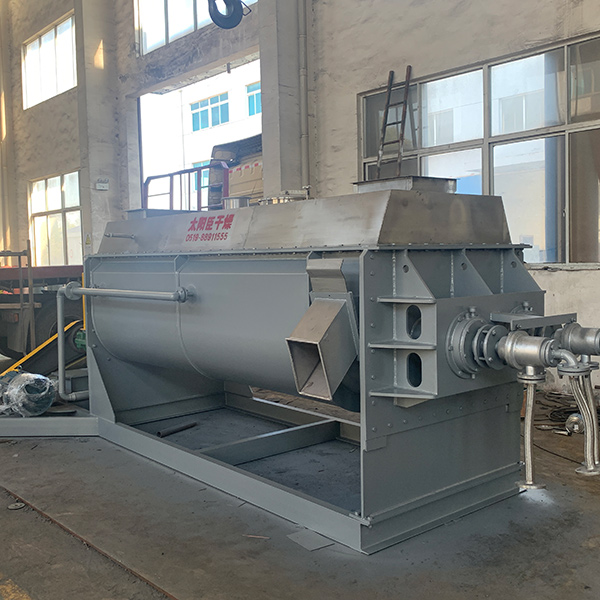

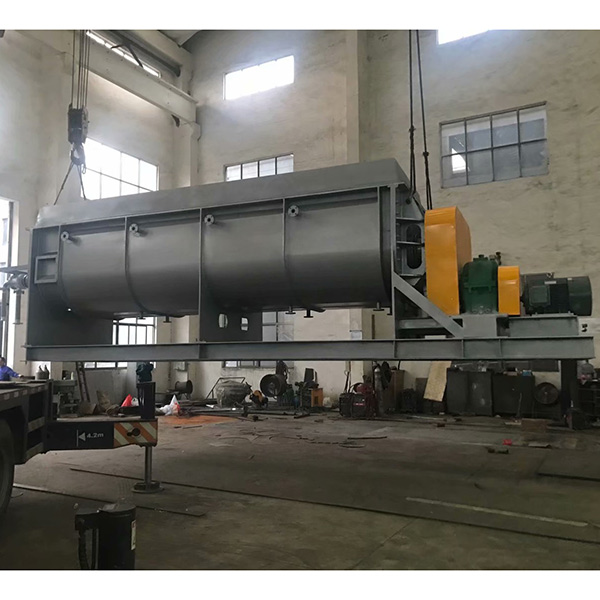

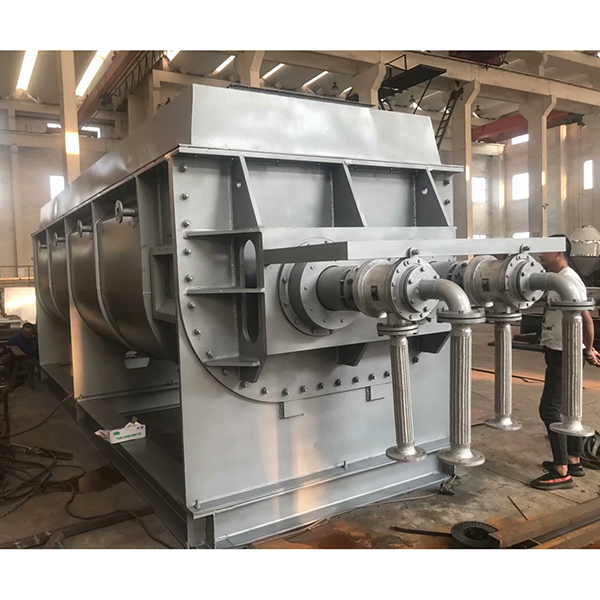
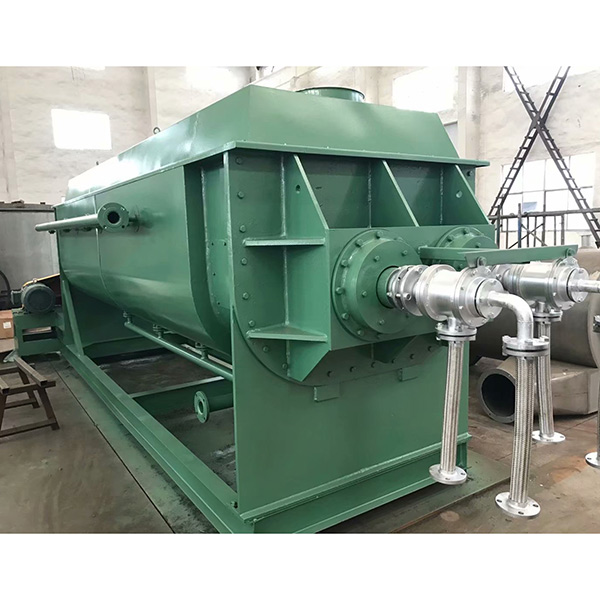




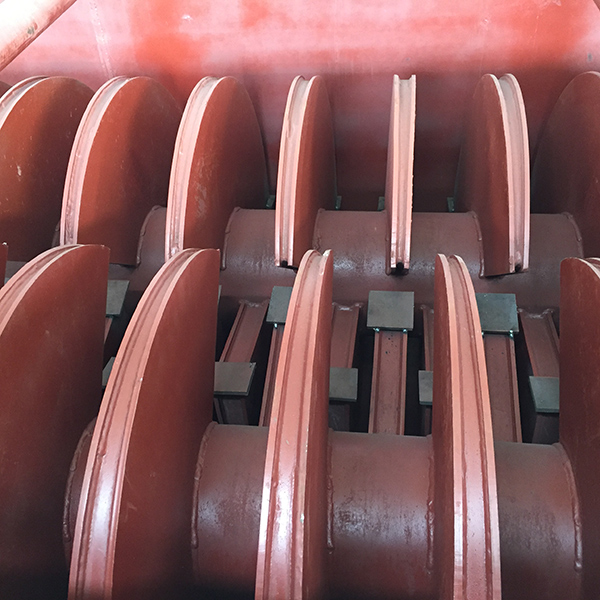
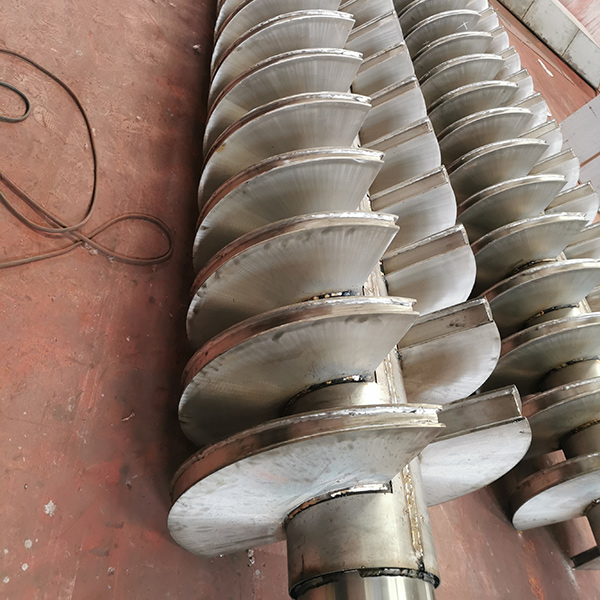

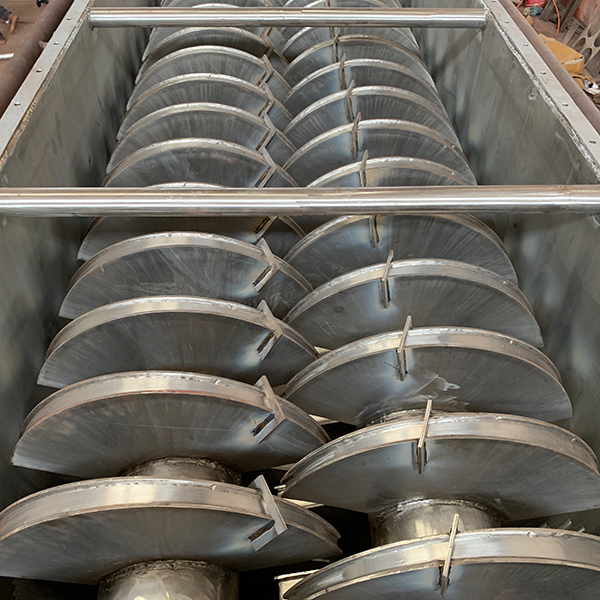
Related Product Guide:
Well-run devices, expert profits group, and better after-sales companies; We have been also a unified huge family, everybody keep on with the organization worth unification, determination, tolerance for Factory source Calcium Sulphate Drying Hollow Blade Sludge Dryer Machine Vacuum Rake Rotary Drum Paddle Dryer - Sludge dryer (hollow blade dryer) – TAYACN , The product will supply to all over the world, such as: Leicester, belarus, Naples, We have advanced production technology, and pursuit innovative in goods. At the same time, the good service has enhanced the good reputation. We believe that as long as you understand our product, you need to be willing to become partners with us. Looking forward to your inquiry.
This is a very professional and honest Chinese supplier, from now on we fell in love with the Chinese manufacturing.

